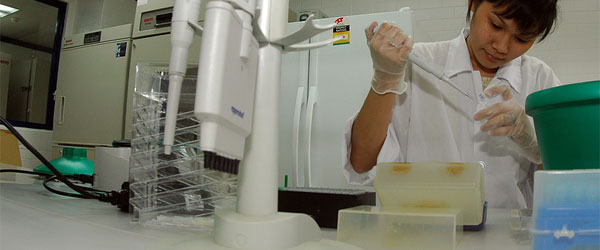Graduate students in the United States are privileged when it comes to picking their prospective labs: most programs have students rotate through several laboratories to help them choose their PhD lab. In some countries, like Japan, students do not have this privilege; they have to apply to a specific lab as a part of the graduate school application rather than have lab rotations.
Unfortunately, picking a lab isn’t as simple as picking a well-known PI with lots of funding. Don’t get me wrong, a big name investigator with money to fund cutting-edge projects can’t hurt your resume. But there is more than that. It’s kind of more like picking a relationship partner—it’s mutual and it’s complicated. A great fit can lead to a productive, happy next couple of years in life, but a bad fit can really run you to the ground and ruin your graduate life.
If you are starting an exciting graduate career in which you get to go through laboratory rotations, then you should take full advantage of this experience. Not only should you enjoy the research, but there are other important questions you should be asking.
Here are some suggestions, so you don’t accidentally end up in a lab that you don’t belong in, or a lab that doesn’t prepare you for the next steps in life.
Do some initial research before your lab rotations
First and foremost, ask members of the lab for their honest opinions of the lab and the PI. If it makes it easier for them to talk more openly, pull them out of the lab for a coffee break.
Most graduate students are honest and will tell you the ups and downs of the lab (just beware of depressed souls going through a streak of failed experiments—they might be sour momentarily, but that shouldn’t reflect on your evaluation of the entire lab).
Know your research style
How independent are you when it comes to lab work? Are you fine with a micro-manager? Is there anyone to train you if you aren’t independent?
Think about the long-term when possible; if no one will be around to train you by the time you actually join the lab, it might be a completely different environment from what you experience during your rotation. This can happen in labs that are small, or clinical labs with residents and fellows that frequently go in and out.
Think about the long–term research prospects
Is there a good foundation for you to build a project on?
You want to make sure that whatever project you are taking on has room to grow and you will also need back up plan if you hit a dead end. Also, it’s not uncommon that the data that the previous postdoc or technician left are, for lack of a better word, bogus. I’ve seen at least a couple of cases in which a student was handed a project but the central construct was wrong or the significant details were lost because the notes were not properly passed on. You can end up wasting a year only to find yourself back at square one. Basically, do your due diligence. Trust but verify.
Think about your relationship with the PI
Is the P.I. a good mentor? How does she/he handle difficult situations? Does she/he look out for his current students? Are students well prepared for talks due to rigorous training at lab meetings? Does the PI train you to write well?
Does the P.I. have industry ties? This can be important if you are looking to transition into industry after grad school—an introduction to an internship can go a long way. And if this is the case, you might want to steer away from a strictly academic lab. Some old-fashioned mentors can get upset if they find out your sole goal in life isn’t about becoming a P.I.
Does the PI seem to like you? Remember, you need to be a good fit for them too, not just the other way around. You don’t have to become buddies with your PI, but you will hopefully have a lasting relationship in which she/he will help you become not just a better scientist but an outstanding professional.
By no means is this an exhaustive list; it’s up to you to make the most out of your rotations. So get going, talk to people and explore your options with an open mind.





